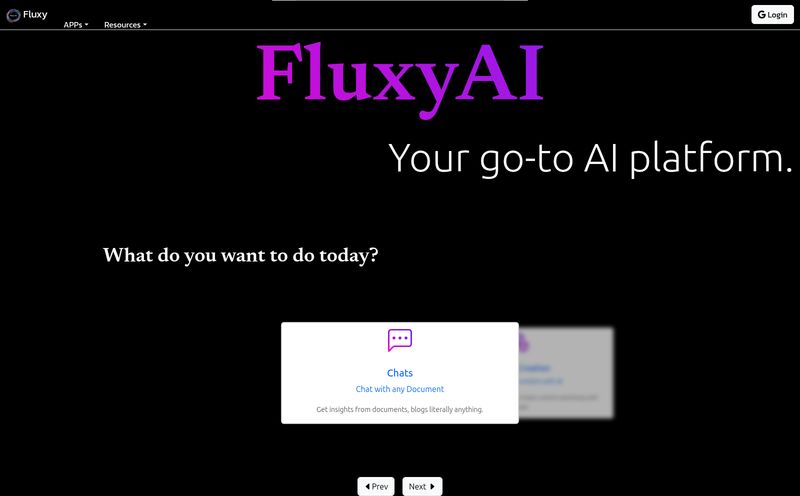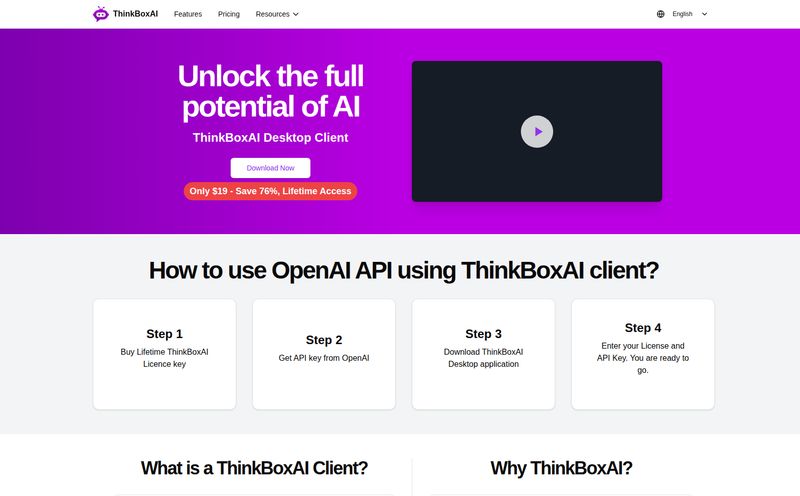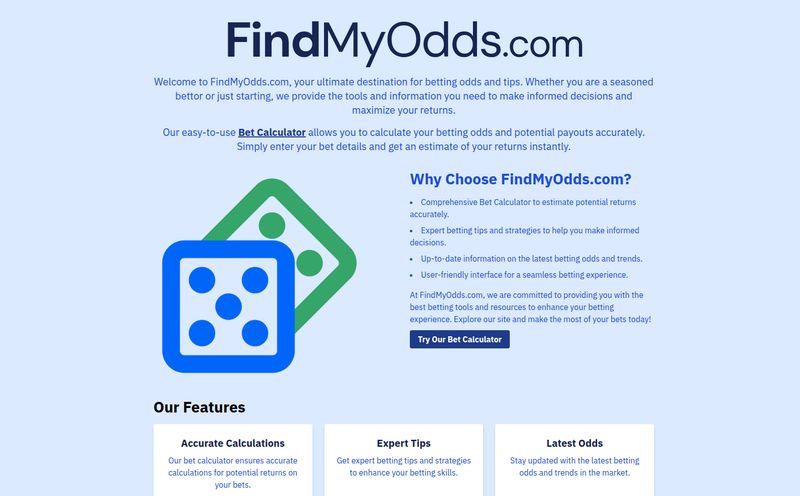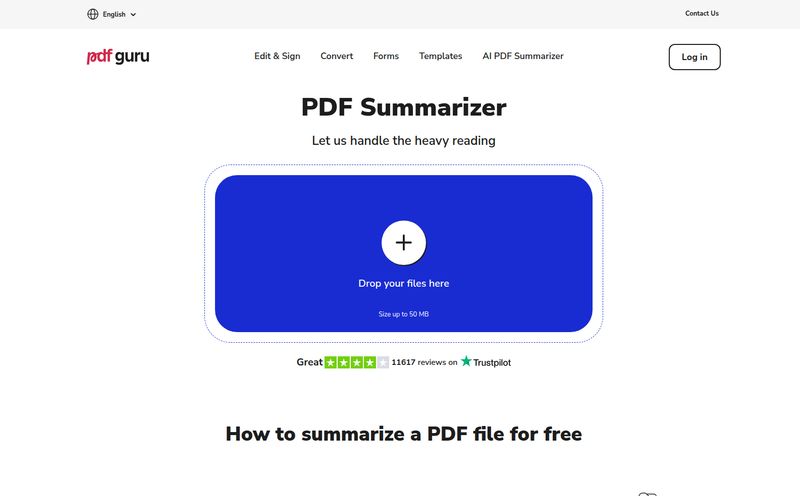If your work involves any kind of online research, your browser probably looks like a crime scene. I'm talking about a dozen (or fifty) tabs open, a separate document for jumbled notes, a few links you emailed to yourself, and that one YouTube video you swear is relevant. It’s a state of organized chaos I know all too well. It’s the modern-day knowledge worker's curse, and it contributes to a serious case of what experts call cognitive load. Your brain just gets… full.
For years, we’ve been patching together solutions. Evernote for notes, Pocket for links, Google Docs for drafting. It works, kinda. But it's clunky. So when a new tool called Unifie popped up on my radar, claiming to be an AI-powered platform for unifying all this mess, my curiosity was piqued. Another AI tool, you say? I know, I know. But this one seemed different. It wasn't just about generating text; it was about managing the entire knowledge journey. So, I rolled up my sleeves and decided to take it for a spin.
What Exactly is Unifie? (And Why Should You Care?)
At its heart, Unifie, a product from Typeless, wants to be the central command center for your research and learning. Think of it less as another single-purpose app and more like a personal research librarian that lives in your browser. Its whole reason for being is to bring your research, your documents, and your notes into one clean, interconnected space.
The big idea is to stop the frantic tab-switching and copy-pasting that kills productivity. Instead of having information scattered across the digital wind, Unifie provides a single 'journey' where you can ask questions, explore topics, pull in sources, and jot down your thoughts—all in one continuous flow. For someone who makes a living wrangling information for SEO and content strategies, the promise of a calmer, more focused workflow is… well, it’s everything.
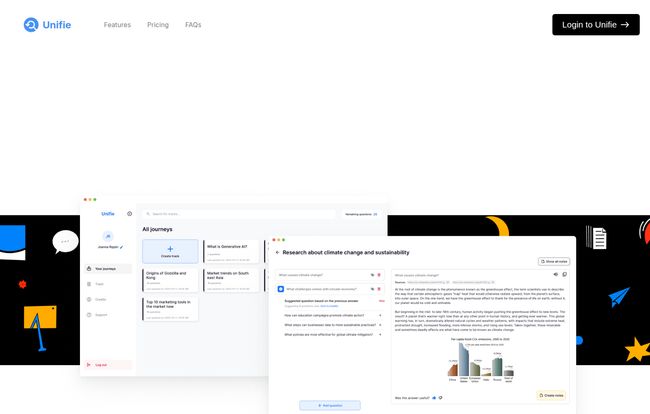
Visit Unifie
A Look at the Core Features
Okay, so the concept is solid. But what does it actually do? I spent some time kicking the tires, and here’s the breakdown of what felt most significant.
The AI-Powered Exploration Engine
The core of the experience is the AI. You start a "journey" by asking a question. For instance, I started one with "What are the latest trends in programmatic advertising?" Unifie goes out and pulls information from reliable web sources, presenting a synthesized answer. What's cool is that it cites its sources, which is a huge step up from many other AI tools that can sometimes feel like a black box. You can then ask follow-up questions, digging deeper and deeper into a topic. It feels less like a simple Q&A and more like an interactive research session.
Taming the Research Beast
This is where Unifie starts to really shine for me. As the AI provides answers, you can easily see the sources it used. No more wondering, "Where did the AI get that stat from?" It’s right there. This seamless integration of sourced research with AI-generated summaries is the secret sauce. It builds trust and makes fact-checking a breeze instead of a chore. Honestly, this alone could save me hours every week.
Your Thoughts, Your Way: Text and Voice Notes
Every researcher knows that the best ideas often strike at random moments. Unifie gets this. You can create custom notes directly within your research journey, keeping your thoughts tied to the context that sparked them. But the feature that genuinely made me go, "Oh, that's clever," was the voice notes. You can just hit record and talk. Perfect for when you're on the go or just too tired to type. Having the ability to capture a fleeting thought with your voice and have it stored right alongside your text-based research is a small detail that makes a big difference.
Bringing Your Own Library
Here's a feature that's still on the horizon but is a massive part of the promise: personal document integration. The paid tiers are slated to get the ability to upload and analyze your own PDFs, Word documents, and even PowerPoints. Imagine feeding all your existing reports, ebooks, and internal documents into your research space. The potential to cross-reference public web data with your own private knowledge base is immense. While it's marked as 'Coming Soon', it’s a clear sign of the platform's ambitious direction.
Let's Talk Turkey: The Unifie Pricing Tiers
Alright, so what's this going to cost? The pricing structure is pretty straightforward, which I appreciate. They have a four-tiered approach that seems to cover everyone from the casual user to the full-blown enterprise team.
First up is the Free plan. You get 100 'actions' (think questions or follow-ups) per month, which is more than enough to get a real feel for the tool. You can create notes, use voice notes, and your research journeys are saved for 6 months. It's a genuinely useful free tier, not just a crippled demo.
Next is the Basic plan at $5/month. This bumps you up to 1,299 monthly actions and gives you lifetime retention of your data as long as you're subscribed. This is also where the upcoming features like PDF/Word analysis and audio note transcription will land. For five bucks, that feels like a pretty sweet deal for anyone doing regular research.
The Pro plan, at $20/month, is for the power users. You get a whopping 5,299 actions, can analyze multiple and larger documents, get more transcription hours, and priority support. If you live and breathe research, or work on a small team, this is likely the tier for you.
Finally, there's an Enterprise plan with unlimited actions, private deployment options, and custom features. This is for the big leagues, obviously, and you'll have to contact them for a quote.
Overall, the pricing feels fair. It scales logically, and the free plan is generous enough to not feel like a trap.
The Good, The Bad, and The "Coming Soon"
No tool is perfect, right? After playing with Unifie, here’s my honest take on the highs and lows.
The Upside
The biggest win for Unifie is its unified environment. Not having to jump between five different apps is a legitimate game-changer for focus and productivity. The user interface is clean, intuitive, and just a pleasure to use. It gets out of your way and lets you focus on the work. The AI is also well-implemented, acting as a true assistant rather than a magic wand that you can't really trust.
The Caveats
On the flip side, many of the most exciting features—like deep document analysis and transcription—are still listed as 'Coming Soon.' This isn't necessarily a dealbreaker, but it does mean you’re investing in a platform's potential as much as its current state. I'm optimistic, but it's something to be aware of. Also, while the free tier is great, 100 actions can be used up pretty quickly if you're doing a deep-dive research session, which will push you toward a paid plan.
My Final Thoughts: Is Unifie Worth Your Time?
So, what’s the verdict? I’m genuinely impressed. In a sea of AI tools that feel like solutions looking for a problem, Unifie feels different. It addresses a real, tangible pain point for anyone who has to wrangle information online. It’s a tool built for clarity and focus.
If you're a student, a researcher, a writer, a marketer, or anyone who frequently falls down research rabbit holes, I think you owe it to yourself to try the free plan. It has the potential to fundamentally change your workflow for the better. It might just be the tool that finally lets you close all those extra tabs. For good.
Frequently Asked Questions about Unifie
- What is Unifie used for?
- Unifie is an AI-powered knowledge management platform. It's designed to help you streamline online research, organize notes, and integrate personal documents into a single, unified workflow, ultimately reducing digital clutter and improving productivity.
- Is there a free version of Unifie?
- Yes, there is! The free plan includes 100 AI actions per month, the ability to create and download notes, and use voice notes. It's a great way to test out the core features of the platform.
- Can I use my own documents with Unifie?
- This feature is on its way. The paid Basic and Pro tiers are slated to include the ability to upload and analyze your own PDF, Word, and PowerPoint documents, allowing you to merge your private knowledge base with online research.
- What makes Unifie different from other AI tools?
- Unlike many AI tools that just generate content, Unifie focuses on the entire research process. Its key differentiator is the seamless integration of AI-powered exploration with clear source citation and intuitive note-taking, all within one unified environment.
- Who is behind Unifie?
- Unifie is developed by Typeless Pte. Ltd., a company focused on creating tools to enhance digital workflows and productivity.
Conclusion
In a world drowning in information, tools that help us find clarity are worth their weight in gold. Unifie is a serious contender in this space. It’s thoughtfully designed, addresses a real need, and has a promising roadmap ahead. It's one of the few new tools I’ve tried recently that I plan on keeping in my personal toolkit. Give the free version a shot—your browser's tab bar will thank you.
Reference and Sources
- Unifie Official Website
- Unifie Pricing Page
- Nielsen Norman Group: Minimize Cognitive Load to Maximize Usability
